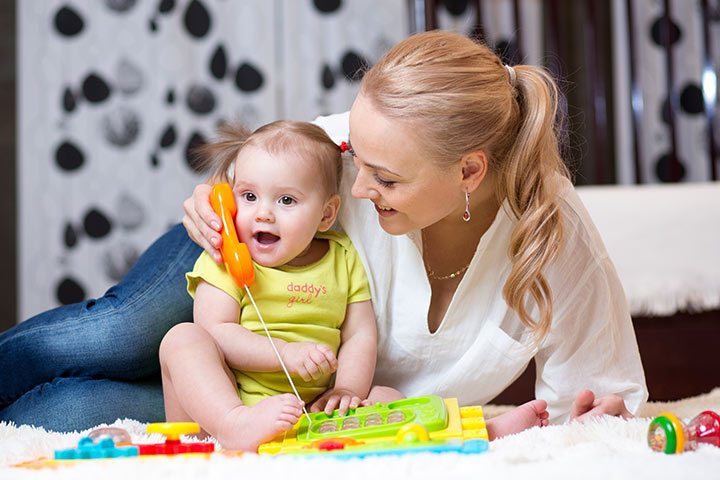Honing Your Child’s Language Skills
Arguably one of the most significant moments of being a parent is hearing your baby’s first words. However, following the development of your little one’s speech can also be an arduous period, what with all the concerns that can pop up. We put up a guide to help you track and hone your baby’s language skills during his first year.
Understanding your baby’s speech development
When tracking the development of your child’s vocal communication skills, you need to know the difference between speech and actual language. Speech is the physical activity of creating sounds used to form words. It involves the precise movements of the mouth and related organs like the lungs and the voice box. As mastering these precise sounds takes a lot of time, vocalizations will take up most of your little one’s first twelve months.
On the other hand, language is the use of words to convey ideas. Language is comprised of three different parts:
- Vocabulary-the words that your child understands
- Grammar-the set of rules that govern how words are used
- Discourse-the skill of structuring sentences into different forms, like conversations, stories, and jokes, to convey ideas.
The development of your baby’s language skills starts once he reaches his first year and continues well into his later years.
It is also important to note that hearing plays a big role in the development of your child’s verbal communication. Aside from identifying particular sounds, his hearing will also help him associate those sounds with the written form of words. Hence, it is vital that you also closely monitor his development here.

Your child’s vocal milestones
To help you follow your child’s language development here is a timetable of the various milestones associated with it. Note that, as is with any other developmental milestone, the exact time at which these appear can vary from child to child. Hence, you have to be patient when waiting for these to appear.
One month
During his first month, your baby’s crying will be his main, if not only, means of getting your attention to attend to his needs. However, that is not the only purpose of his wails during this time, as crying also helps prep his brain for eventual verbal communication by strengthening the neural pathways needed for it.
2 to 5 months
At this stage, your child will make his first vocalizations in the form of those familiar coos. Here, he begins to explore how to use his lips and tongue to create different sounds, often focusing on particular sounds. Vocalization also serves as a fun little activity of him.
6 to 7 months
Your baby’s vocalization skills expand as he now adds consonant sounds to his repertoire. This means that he now has the full range of sounds needed for speech. Child psychologists note that forming consonant sounds come in later, as these require finer control when using the tongue and the lips, which is why it is considered a big leap.
8 to 9 months
By this point, you will notice your baby being able to form distinct syllables. However, despite him being able to form word-like strings of sounds, this is not yet true speech, as he may be merely repeating sounds he hears from you. But, you can consider this as his final stepping stone.
10 to 12 months
This is often considered as the halfway point before his first true spoken word, as he begins to assign syllable combinations to real objects. These syllable combinations may or may not coincide with those found in the actual words used to refer to the objects.
13 to 15 months
This is the moment you are waiting for: his first true spoken word. Often, this would be the simple, one-syllable words like Da (daddy), Ma (mommy), and ball, which are also the objects he most recognize and are fascinated with. However, some children will be able to say words with more than one syllable even this early.
16 to 18 months
Your child’s vocabulary is now expanding, with him having a vocabulary of at least 20 words by his 16th month. It is also here where he starts incorporating other parts of speech, like verbs, and adjectives, into his set of words.
19 to 22 months
Here, he begins stringing together words which sound like actual conversations, sometimes even accompanied by non-verbal cues like hand gestures. However, you likely won’t understand anything here, since this are all still nonsensical phrases.
23 to 24 months
By the time your toddler hits his second year, he is now able to string two or three words together in short mini sentences that are able to express complete ideas. It is also at this stage where your child is starting to figure out that he can use language to make things happen, such as using the word “more” if he wants to get more of a particular item.

How you can help develop your child’s language skills
As is with his other developments, you can’t rush your baby’s speech. However, the following tips will help him develop it the right way.
- Tell him what is happening around him throughout the day.
- Tell and read a lot of stories to him.
- Use real words when referring to objects to help him remember those.
- Follow your child’s lead and talk about the objects that interest him.
- Take him outside often to expand what he sees and his vocabulary.
- Give him songs to listen to.
- Give him positive feedback.
Next, we will take a look at some common speech and language problems and how to correct them.

Leave a Reply